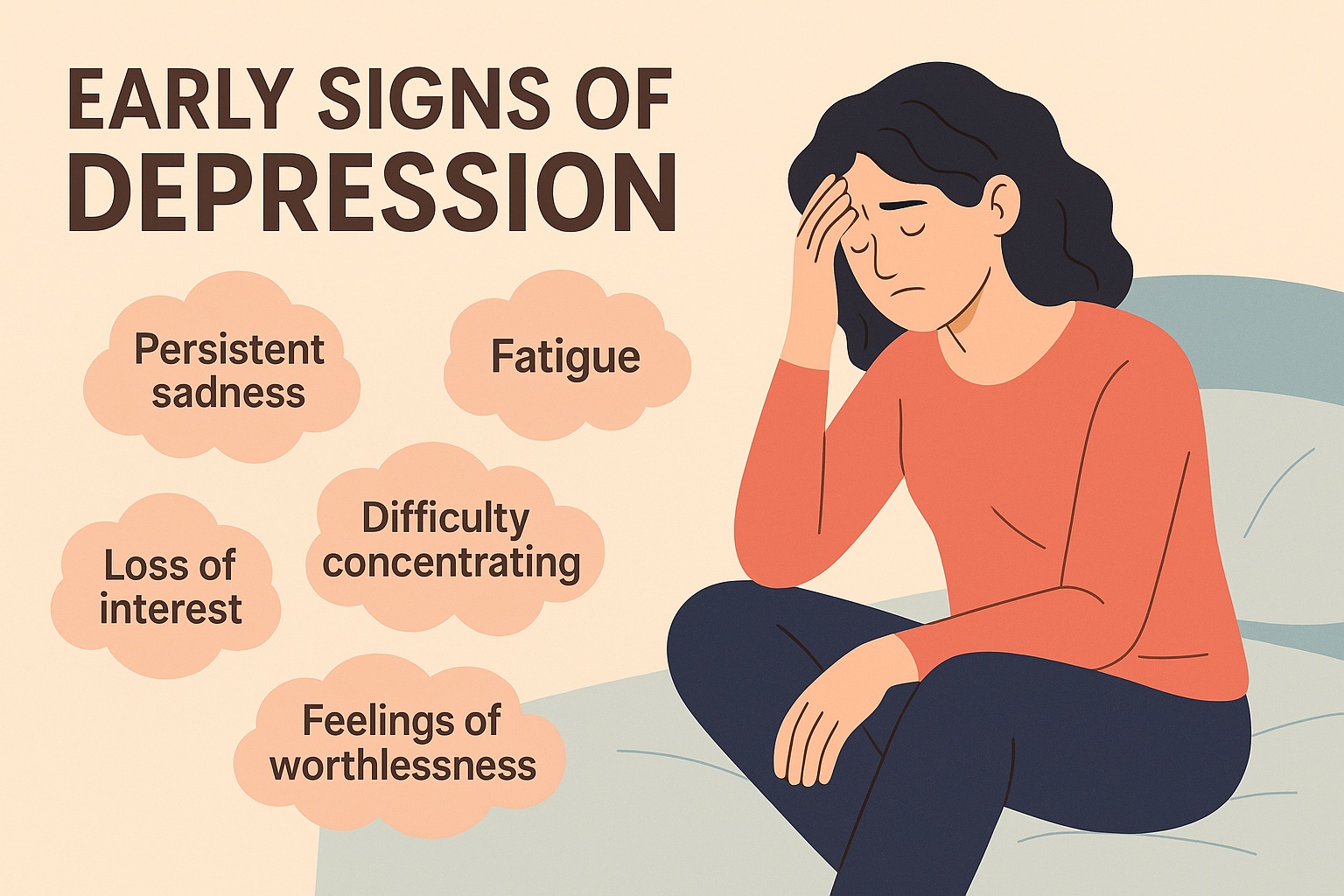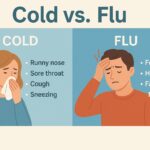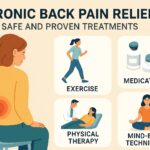Why Recognizing Early Signs of Depression Matters
Early signs of depression often appear subtly, making them easy to dismiss or overlook. But catching them early can mean the difference between a short-term mental dip and a prolonged, life-altering condition. In 2025, with rising social pressures, screen fatigue, and ongoing global uncertainty, more Americans are silently struggling with mental health than ever before. This guide helps you spot the warning signs early and take meaningful steps toward support and recovery.
What Is Depression?
Depression is more than just feeling sad or having a rough week. It’s a serious mental health condition that affects how a person thinks, feels, and functions daily. While it can range from mild to severe, identifying the early warning signs increases the chances of successful intervention and recovery.
Most Common Early Signs of Depression
Below are the most recognized indicators of early-stage depression. Some may appear gradually, while others might be more noticeable:
- Persistent sadness — Feeling low for most of the day, nearly every day, without a clear reason.
- Loss of interest — Losing enjoyment in activities once found pleasurable, like hobbies, exercise, or social events.
- Fatigue or low energy — Constant tiredness that sleep doesn’t resolve can signal emotional burnout.
- Sleep disturbances — Trouble falling asleep, staying asleep, or sleeping excessively.
- Changes in appetite — Noticeable weight gain or loss, often tied to emotional eating or lack of appetite.
- Feelings of hopelessness — A sense that things won’t improve or that life lacks meaning or direction.
- Difficulty concentrating — Struggling to focus at work or during daily tasks.
How Early Signs of Depression Differ From Everyday Sadness
Everyone feels down now and then, but clinical depression symptoms persist for weeks and interfere with daily functioning. If sadness or fatigue continues beyond two weeks or starts affecting relationships, work, or self-care, it’s likely something more serious than a passing mood.
Additional Early Indicators of Anxiety
Depression often coexists with anxiety, which has its own early signals:
- Restlessness or feeling “on edge”
- Excessive worry or overthinking
- Physical symptoms like a racing heart, sweating, or shaking
- Irritability or frequent frustration
Recognizing anxiety in tandem with depression helps build a full picture of what someone may be experiencing emotionally and physically.
Who’s Most at Risk in 2025?
While depression can affect anyone, some populations are more vulnerable in today’s environment:
- Teens and young adults — Social media pressure, academic demands, and identity development challenges.
- Remote workers — Isolation and blurred work-life boundaries increase risk.
- People with chronic illness — Ongoing pain and health issues can contribute to depressive symptoms.
- Caregivers and parents — Emotional exhaustion and burnout are common triggers.
How to Respond to Early Signs of Depression
Recognizing the problem is only the first step. Here’s what you can do if you or someone you love shows early signs of depression:
- Start the conversation — Gently ask questions and offer nonjudgmental support.
- Encourage professional help — A licensed therapist or mental health provider can guide diagnosis and treatment.
- Promote self-care — Daily walks, journaling, meditation, and proper nutrition make a difference.
- Limit isolation — Even brief social interactions or online connections can help reduce feelings of loneliness.
Effective Treatment Options
Many people recover from depression with the right support. Common treatments include:
- Talk therapy — Cognitive-behavioral therapy (CBT) helps reframe negative thinking.
- Medication — Antidepressants may be prescribed by a psychiatrist or primary care provider.
- Lifestyle changes — Consistent sleep, exercise, and mindfulness practices improve mood over time.
FAQs About Early Signs of Depression
- How long should symptoms last before seeking help?
If symptoms persist for more than two weeks or affect daily functioning, consult a professional. - Can early signs of depression go away on their own?
Sometimes, but it’s safer to address symptoms proactively rather than wait. - Is depression preventable?
While not always preventable, early intervention and healthy coping strategies reduce severity and frequency.
Conclusion: Don’t Ignore the Early Signs
Spotting the early signs of depression is the key to effective recovery. Whether it’s for yourself or someone close to you, awareness and action can make a lasting difference. Mental health matters — and recognizing the first signs is a powerful step toward healing.



